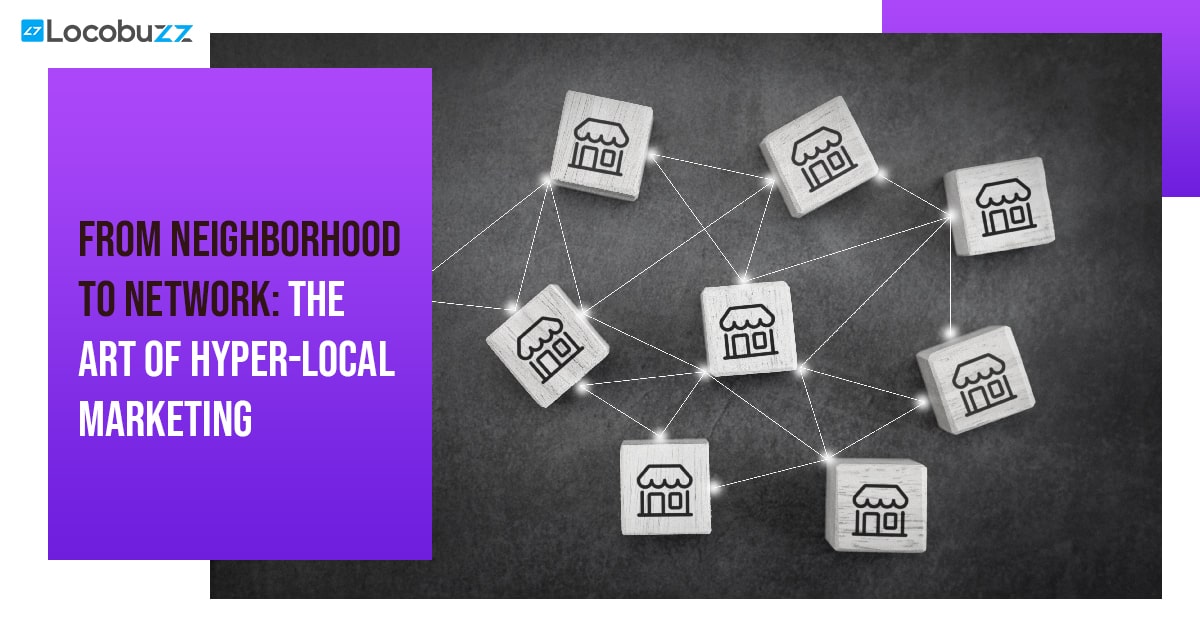Online Reputation Management for E-commerce Business [Complete Guide]

Have you ever bought something online and then checked out the reviews to make sure it’s a good product? In the world of online shopping, reviews are king. They hold the power to make or break a product’s success. Well, this is what online reputation management for e-commerce businesses is!
Nowadays, online reviews are the new word-of-mouth. They significantly impact your e-commerce business’s success. Just like a glowing recommendation from a friend, positive online reviews can convince hesitant shoppers to hit “buy” and turn them into loyal customers. But a negative review, left unchecked, can be like a bad reputation spreading like wildfire. It can scare away potential customers and damage your brand image.
This is where online reputation management for ecommerce business comes in! It’s about how to encourage positive reviews, handle negative feedback like a pro, and use customer insights to improve your products and services. It’s all about harnessing the power of online conversations to build trust, address concerns, and ultimately win over customers. It’s about going beyond those reviews; it’s about actively shaping how your brand is perceived online by your customers.
What is Online Reputation Management for E-commerce Business?
Online reputation management (ORM) is like taking care of your online image. It’s about making sure people see your e-commerce business in a good light on the internet.
To do this, you need to do two main things: be proactive and reactive.
Being proactive means doing things to make people like your business. For example, you can make sure your website is easy to use and that people get what they ordered without any problems. You can also ask happy customers to write reviews and respond nicely to any feedback, good or bad. Another thing you can do is use social media to connect with people who like your brand. This way, you build a group of loyal customers who trust you.
Being reactive means dealing with any negative stuff that comes up. If someone says something bad about your business online, you need to address it politely and try to fix the problem. This shows that you care about your customers and want to make things right.
By doing these things, you can make sure people see your e-commerce business as trustworthy and reliable.
Importance of ORM for E-commerce Business
Online reputation management (ORM) is important for e-commerce businesses to maintain a positive image online. It directly impacts how customers perceive and trust your brand. It builds trust, enhances your brand image, attracts and retains customers, boosts your search engine visibility, and helps prevent and manage crises effectively.
1) Having Credibility:
When potential customers see this positive feedback from others, it builds trust. They see real people who have had good experiences with your business, and that makes them feel more confident about buying from you. It’s like getting a personal recommendation from a friend!
2) Building Strong Brand Presence:
Your brand image, or how people see your business, is affected by what they see online. Good reviews, happy customer stories, and positive social media posts make people like your brand more. But if they see bad comments or can’t find anything about your brand online, they might not trust it. So, it’s important to have a good online reputation with positive things said about your business.
3) Influence Purchase Decisions:
Most people check online before buying things. If they see good stuff about a product or company, they will likely buy it. Positive reviews and comments can make them feel good about their choice, so they are more likely to spend money. This helps businesses make more sales and earn more money. So, having a good reputation online can make people want to buy from you, which is good for your business.
4) Customer Relationships:
ORM helps businesses connect with customers in a meaningful way. Businesses can improve their online reputation by responding to reviews, addressing concerns, and offering great customer service. This not only builds trust but also strengthens relationships with customers. When customers feel heard and valued, they are more likely to come back and buy again. This loyalty to the brand helps the business grow and succeed in the long run.
Discover how Locobuzz's ORM capabilities are transforming the E-commerce industry.
Role of ORM in E-commerce Business
Imagine your online reputation is like your shop window for your e-commerce business. People walking by can peek through and decide if they want to come in. Online reputation management (ORM) is all about making sure your window is clean and shows off your best products. There are ways in which online reputation management for e-commerce businesses works.
1) Checking on what people say:
The first step is determining what people say about your business online. This could be reviews on your website, social media posts, or even articles. These can be positive mentions that boost your reputation or identify areas for improvement. You can use tools to get notified when your business is mentioned online.
2) Responding to reviews:
Both good and bad reviews are important! Thank customers for positive reviews and show them you appreciate their business. This personalizes the response and shows you read their feedback. Whereas for negative reviews, acknowledge the problem, take it’s responsibility, and offer them a solution. Be polite and professional, even if the customer is upset.
3) Encouraging positive reviews:
People are more likely to leave a review if they have had a great experience. Ask happy customers to leave a review on your website or social media. You can also offer small discounts or promotions for leaving a review. The most important thing is to focus on providing a consistently great customer experience.
You can build a strong online reputation that will attract more customers to your e-commerce business. Remember, a good online reputation is like a shiny shop window – it entices people to come in and explore what you have to offer!
5 Benefits of ORM for E-commerce Businesses
Maintaining an online reputation for an e-commerce business requires monitoring, engagement, qualitative products and services, and a lot more authenticity. There are benefits to maintaining an online reputation for an e-commerce business.
1) Builds Trust:
Good online reviews help people trust your business. If a customer likes what you sold them, ask them to write a review. You can do this with an email after they buy something. If someone leaves a bad review, answer them nicely and quickly. This shows you take their feedback seriously. This builds a sense of trust and belongingness. It brings you more customers and a reputed business image.
2) Increases Sales:
A good online reputation can lead to increased sales as customers are more likely to buy from businesses with positive feedback. Showcase positive reviews on your website and social media channels. Offer incentives for customers to leave reviews, such as discounts on future purchases.
3) Improves Brand Visibility:
Positive online reviews and mentions help improve your brand’s visibility in search engine results. Encourage satisfied customers to share their experiences on social media and provide testimonials for your website. Engage with customers on social media platforms to increase brand awareness.
4) Managing Negative Feedback:
ORM allows businesses to address and manage negative feedback easily. Monitor review websites, social media channels, and forums regularly for any negative comments or reviews. Acknowledge the negative review, respond professionally, offer solutions to resolve any issues, and show your commitment to customer satisfaction.
5) Enhances Customer Relationships:
ORM helps businesses build stronger relationships with customers by showing that their feedback is valued and acted upon. Implement a customer feedback system where customers can easily provide suggestions or report any issues. Use this feedback to improve your products or services and communicate the changes you have made based on customer input.
E-commerce businesses can maintain a positive online reputation, increase customer trust and loyalty, and ultimately drive sales and growth.
Building a Positive Online Reputation Strategy
Nowadays, people often rely on online reviews and feedback to make purchasing decisions. A positive reputation can attract more customers, increase sales, and encourage repeat business. Conversely, a negative reputation can deter potential buyers and harm the overall success of the business. It is necessary to establish trust and credibility with potential customers.
By actively managing and cultivating a positive online reputation, e-commerce businesses can enhance their brand image, foster customer loyalty, and ultimately thrive in the competitive online marketplace. Here’s how you can build a positive ORM strategy for e-commerce businesses.
Step 1: Understand Your Audience
who your customers are, what they like, and what they expect from your e-commerce business. Take the time to interact with them through social media, forums, and reviews to gain insights into their preferences and behaviors.
For example, let’s say you run an online boutique selling handmade jewelry. By engaging with your audience on social media, you notice that they appreciate high-quality craftsmanship and eco-friendly materials. Armed with this knowledge, you can tailor your product offerings and messaging to align with their needs and interests. It makes you understand what exactly you need to deliver to your target audience.
Step 2: Provide Excellent Customer Service
Deliver exceptional customer service at every touchpoint of the buying journey. Respond to inquiries and concerns, address issues with empathy and professionalism, and go above and beyond to exceed customer expectations.
Imagine a scenario where a customer receives a damaged item from your e-commerce store. Instead of simply offering a refund, you proactively reach out, apologize for the inconvenience, and offer a replacement along with a discount on their next purchase. This gesture not only resolves the issue but also leaves a positive impression on the customer, encouraging them to recommend your business to others as well.
Step 3: Actively Manage Reviews and Feedback
Monitor online reviews and feedback channels regularly, and respond to both positive and negative comments transparently and constructively. Show appreciation for positive reviews and address any negative feedback promptly and professionally, demonstrating your commitment to customer satisfaction.
For instance, suppose a customer leaves a negative review about receiving a product late due to shipping delays. Instead of making excuses, you acknowledge the delay, apologize sincerely, and offer a partial refund or a discount on their next purchase as a goodwill gesture. This not only resolves the issue but also showcases your dedication to customer care to potential buyers who might come across the review.
Step 4: Engage with Your Community
Build a strong online community around your brand by actively engaging with your audience on social media channels, hosting live events, and fostering discussions related to your products or industry. Encourage user-generated content such as reviews, testimonials, and photos of satisfied customers to showcase social proof and strengthen trust in your brand.
For example, you can organize a giveaway contest on Instagram where participants are required to share photos of themselves wearing your products and tag your e-commerce store. This not only generates buzz around your brand but also encourages existing customers to become brand advocates by sharing their positive experiences with their followers.
Step 5: Stay Authentic and Transparent
Maintain authenticity and transparency in all your interactions with customers. Be honest about your products, pricing, and policies, and try to build genuine connections with your audience based on trust and integrity.
Consider a situation where a customer asks about the sourcing of materials for your products. Instead of providing vague answers, you openly share information about your sustainable sourcing practices, highlighting your commitment to ethical production methods. This transparency builds credibility and fosters loyalty among customers who value honesty and integrity in the brands they support.
This not only keeps your customers happy and loyal, but also makes your business profile strong, builds trust, and maintains a good online reputation management for e-commerce business!
Best tool for ORM in E-commerce Business
E-commerce business is based on a positive online reputation. Locobuzz has functionalities that can majorly benefit its online reputation management.
One key strength is its ability to monitor brand mentions across various platforms. Locobuzz tracks what people say about your brand on social media, review sites, and even your e-commerce storefront. With this comprehensive picture, you can identify areas where customers praise you or express concerns.
Locobuzz goes beyond just monitoring. It can analyze the sentiment behind these mentions, determining if the conversation is positive, negative, or neutral. This prioritizes negative feedback, allowing you to address customer issues promptly before they snowball.
Imagine having a central hub to manage all your customer interactions. Locobuzz offers exactly that. You can respond to reviews and messages from all your platforms in one place. This streamlines your online reputation management and ensures consistent communication across channels. Locobuzz allows you to see how your competitors are managing their online reputation. This competitor benchmarking provides valuable insights. You can see what strategies are working for them and use that knowledge to refine your approach.
The digital world can be unpredictable, and online crises can erupt quickly. Locobuzz helps you stay ahead of the curve. With real-time alerts and insightful analytics, you can identify potential issues early on and take steps to mitigate them. This proactive approach safeguards your brand reputation from serious damage. By providing tools to monitor customer sentiment, respond effectively to feedback, and learn from competitors, Locobuzz empowers you to build trust and loyalty with your customers.
Final Thoughts
In this generation, online reviews and word-of-mouth hold immense power for e-commerce businesses. Building a strong online reputation is important for attracting new customers and retaining existing ones. Here’s a simple way to think about it: online reputation management (ORM) for your e-commerce store is like tending to your garden. By regularly monitoring reviews, addressing concerns punctually, and actively encouraging positive feedback, you can cultivate a thriving online presence that builds trust and boosts sales.
Effective ORM goes beyond just responding to reviews. By proactively soliciting feedback, you can nip potential problems in the bud and use customer insights to improve your products and services. Additionally, a positive online reputation can position you higher in search engine results, making it easier for potential customers to find you. So, invest some time in your online reputation management – it’s a surefire way to watch your e-commerce business blossom.






















